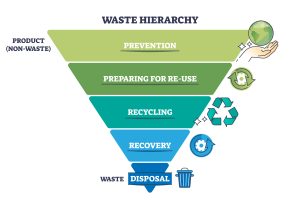
With updates to UK employment law on the horizon, it’s essential employers are aware of the upcoming changes to “fire and rehire” practices—and how these may affect how you manage your workforce.
This new legislation could impact how you approach employment contracts, workplace change, and employee relations. Read on to find out what’s changing, the risks involved, and how to stay compliant.
What’s Changing?
The Employment Rights Bill is being updated to include a new clause—Section 104I—which may come into force as early as October 2025.
Under the proposed changes, it will be automatically unfair to dismiss an employee for:
-
Refusing to accept a change to their contract, or
-
Being dismissed and re-engaged (or replaced) on revised terms
This shift aims to curb the use of “fire and rehire” tactics, where employees are pressured into new terms without genuine agreement. You can read the full draft and updates via GOV.UK.
Why Does This Matter for Employers?
The proposed law marks a significant change to how businesses can manage contractual variations.
Even if your current employment contracts include a variation clause, these may no longer be enough to provide legal protection. Employers using dismissal and re-engagement to enforce change could now face:
-
Unfair dismissal claims
-
Employee disengagement and disputes
-
Reputational damage
For a wider overview on this topic, visit ACAS guidance on changing employment contracts.
Real-World Scenarios at Risk
You’ll now need thorough consultation and employee agreement before making changes such as:
-
Adjusting working hours or shift patterns
-
Removing or revising bonus or commission schemes
-
Changing job roles, responsibilities, or work locations
These scenarios could carry high risk if not managed correctly. If you’re unsure, our HR Management Solutions provide the expert advice and guidance you need to handle such transitions safely.
What You Should Do Now
To prepare your business for these changes and reduce legal risk, we recommend:
- Review employment contracts
Make sure your variation clauses are up to date. Don’t rely on them alone—seek tailored support with our HR Consultancy services. - Plan ahead
If you anticipate needing changes, start planning and consulting early. - Keep a paper trail
Document your rationale—particularly if financial hardship or business restructuring is behind the proposed change. - Consult and communicate
Open dialogue with employees or their representatives is essential. Take time to reach mutual agreement. - Take expert advice
The risk of unfair dismissal is real. Speak to our team before you make any changes—visit our Contact Page or call us on 01245 204450.
We’re Here to Help
Navigating evolving employment law can be complex—but you don’t have to do it alone.
At Kingswood Group, we offer tailored HR Consultancy, document review support, and practical advice to help you manage change with confidence.
Looking for Outsourced HR Services?
Call 01245 204450 to talk to one of our HR professionals today, or use our simple online contact form.
Outsourced HR Services

